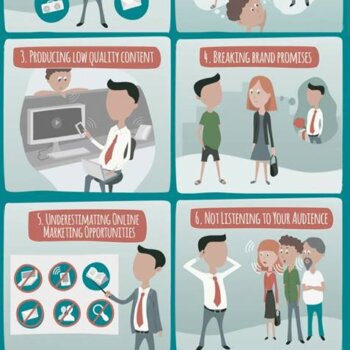Market conditions are rarely optimal, competition is rarely incompetent, funding is rarely sufficient, but that is why business owners have so much impact. Entrepreneurs in particular, compared to owners of more structured businesses, play a critical role in the success or failure of their small businesses.
Successful Entrepreneurial Characteristics
Someone who picks up new concepts quickly, adapts to changing environments and new technologies, and is known for a stubborn perseverance has the fundamental requirements to be a successful business owner. In order to make use of those skills one must have vision and intuition as well, and more importantly, a deep understanding of the customer, gained through observation, interaction, and ceaseless testing.

In business, the true entrepreneur always has an advanced set of skills that sets him or her apart from the rest. These traits, which include the following, may enable the entrepreneur to achieve more than the average business owner:
- Perseverance: This is the most important trait, as entrepreneurs tend to encounter a great deal of failure and obstacles. Building something from the ground up usually requires it to fall down periodically during the experimentation phase. Persistence and a borderline-stubborn degree of perseverance are critical success factors for business owners.
- Charisma / group leadership: Leading teams and managing the skill sets of others, often without formal power or hierarchy, is also crucial to success. Entrepreneurs must be expert managers, capable of capturing value in team work environments. It is also useful to be charismatic in pitching new ideas and/or negotiating terms and agreements.
- Innovative: Entrepreneurs should always be thinking about how things should be done, not how they are done, and this requires creative solutions to enable disruptive innovation.
- Risk-taker: Risk goes hand in hand with entrepreneurship, and entrepreneurs must not shy away from it. Taking large risks can lead to large rewards (and, of course, large failures). Entrepreneurs not only accept this trade off, but embrace it.
Entrepreneurial Challenges
Most entrepreneurs will experience many failures before they experience success. This can be extremely challenging and discouraging. However, they will gain from this an attitude that there is always be a better way to do things, and this will help them in the long term.
Entrepreneurs often work very long hours; social activities may need to be sidelined at first while the entrepreneur gets the business going. At times, the business may even require 24/7 availability. There may be a need to infuse the business with more money than expected, and profits or rewards may not be seen immediately. This is why a long-term orientation, in which present investments are maintained in pursuit of long-term rewards, is essential.
This was written by Boundless Business. See More.





























